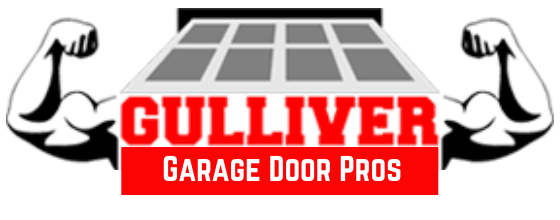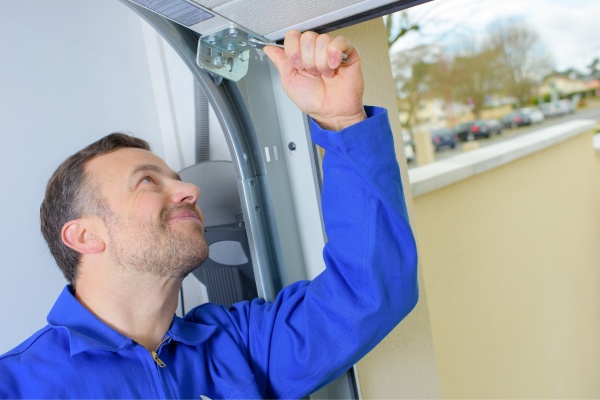Is your garage door making unsettling noises? Does it refuse to open or close smoothly? Don't panic! This comprehensive guide will walk you through common garage door motor problems, troubleshooting steps, and when to call in a professional. We'll cover everything from identifying symptoms to choosing the right replacement motor and performing essential maintenance to keep your garage door running smoothly for years to come.
Recognizing the Warning Signs: Is Your Garage Door Motor in Trouble?
A failing garage door motor often displays tell-tale signs. Listen for unusual noises like grinding, clicking, or whining during operation. A sluggish or jerky movement could also indicate trouble. If your door is frequently off-track, struggles to open or close completely, or simply refuses to respond, these are all strong indicators that your motor needs attention. Ignoring these problems can lead to further damage, potentially even a complete breakdown, necessitating more expensive repairs down the line. Early detection is key to preventing costly headaches and ensuring the safe and reliable operation of your garage door system. Remember, a broken garage door spring is a serious issue that needs immediate professional attention.
Troubleshooting Your Garage Door Motor: A Step-by-Step Guide
Before calling a repair service, attempt some basic troubleshooting. First, check the power supply to the motor; ensure the circuit breaker hasn't tripped and that there are no loose wires. Next, inspect the safety sensors, those infrared beams near the door's bottom. If they're obstructed by debris or misaligned, the door won't function correctly. Clean or adjust these sensors accordingly. If your garage door opener uses a chain or belt drive, inspect http://claytonitlz735.tearosediner.net/conquer-edmonton-s-affordable-fashion-scene-in-2025 them for any visible damage or slack. Lubricate moving parts where applicable with a suitable lubricant. For more complex issues like faulty capacitors or electrical components, professional help is recommended. Incorrect repairs can result in injury or further damage to your system.
Choosing the Right Replacement Garage Door Motor: Key Considerations
Replacing your garage door motor requires careful consideration. Match the horsepower rating to the weight of your garage door. A higher horsepower is suitable for heavier doors. Consider the drive type—belt drive systems generally operate quieter and smoother than chain drives, sprocket systems are another option. Assess the type of garage door opener you currently have; direct-drive openers are becoming increasingly popular for their quietness and efficiency. Check for compatibility with your existing garage door opener system to ensure a seamless installation and consider energy-efficient options for lower operating costs. Always follow manufacturer instructions for installation to ensure safety and optimal functionality.

When to Call a Professional Garage Door Repair Service
While some minor troubleshooting can be done DIY, certain situations demand professional expertise. If the problem persists despite your efforts, if there are complex electrical issues, or if you suspect a damaged spring, calling a reputable garage door repair service is the safest and most efficient approach. Emergency repairs may be necessary in situations where the door is completely inoperable or poses a safety risk. A professional technician possesses the knowledge, tools, and experience to diagnose and repair problems accurately and efficiently. They also ensure that all repairs comply with safety standards, giving you peace of mind.
Understanding the Cost of Garage Door Motor Repair
The cost of garage door motor repair varies considerably. Factors influencing price include the type of motor, labor costs (which can be higher for emergency services), the extent of the damage, and whether it's repair or replacement. Expect to pay anywhere from a few hundred dollars for basic repairs to upwards of a thousand dollars for more complex issues or full motor replacements. Obtaining multiple quotes from different service providers is always advisable to ensure fair pricing. Remember, a relatively small investment in professional repair can often prevent more significant and costly problems down the road.
Exploring Different Types of Garage Door Motors
Garage door motors come in various types, each with its own advantages and disadvantages. Chain-drive openers are the most common and generally the most affordable, providing a reliable mechanism but can be somewhat noisy. Belt-drive openers are quieter and smoother in operation, making them ideal for those seeking a quieter garage. Direct-drive motors are the latest innovation, offering quiet and efficient operation with a longer lifespan, though they may be more expensive upfront. Consider your budget, noise preferences, and the weight of your garage door when selecting a motor type. Choosing the right system is critical for longevity and smooth operation.
Maintaining Your Garage Door Motor for Long-Term Performance
Regular maintenance can significantly extend the lifespan of your garage door motor. Lubricate moving parts like chains or belts periodically with a garage door lubricant. Inspect the tracks, rollers, and springs for any signs of wear or damage. Clean the motor housing and the surrounding area to prevent dust and debris buildup. Address any minor issues promptly to prevent them from escalating into more serious problems. These simple maintenance procedures can contribute to smoother operation, reduced noise levels, and prevent the need for costly repairs in the long run. Remember to consult your owner’s manual for specific maintenance recommendations.
FAQ: Your Garage Door Motor Questions Answered
Q: What causes a garage door motor to fail?
A: Common causes include wear and tear from regular use, electrical issues such as faulty capacitors or wiring, and lack of routine maintenance.
Q: Can I fix my garage door motor myself?
A: Simple issues like cleaning or adjusting safety sensors are manageable DIY tasks; however, complex problems involving electrical components or mechanical repairs should be left to a qualified technician.

Q: How long does a garage door motor typically last?
A: With proper maintenance, a garage door motor can typically last between 10 and 15 years, but this can vary depending on usage and the quality of the motor.
Q: What are the safety features I should look for in a new garage door motor?
A: Essential safety features include automatic reverse mechanisms that stop the door if it encounters an obstacle, manual release options for opening the door in case of power failure, and reliable safety sensors that prevent accidents.
Q: Is it worth it to repair an old garage door motor?
A: The decision of whether to repair or replace depends on several factors. Consider the motor's age, condition, the cost of repair compared to the cost of replacement, and the overall functionality of the motor. Often, a new motor can offer long term value and improved features compared to repairing an old model.
In conclusion, understanding your garage door motor's workings, performing regular maintenance, and knowing when to seek professional help are essential for maintaining a safe and functional garage door system. By following the advice provided here, you can extend the lifespan of your motor, prevent costly repairs, and enjoy a smooth, problem-free garage door experience. Should you require professional help, don't hesitate to contact a qualified garage door repair service.